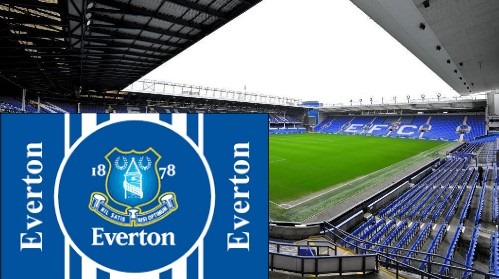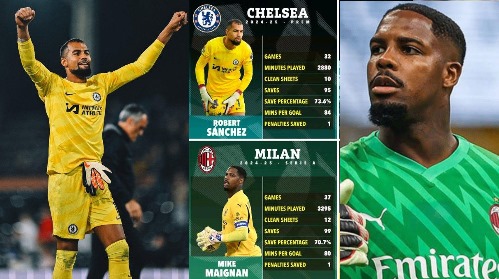Everton Football Club has once again found itself deep in financial trouble, marking its seventh consecutive year of losses. The latest deficit for the 2022-23 season stands at a staggering £89.1 million—a significant jump from the £44.7 million loss recorded in the previous season.
While football fans are used to their club making headlines for goals and glory, Everton has taken a different approach: dominating the financial loss leaderboard. The Toffees’ economic challenges stem from a cocktail of unfortunate events, ambitious investments, and costly managerial shake-ups.
Sponsorship Setbacks: A Costly Fallout
One of the biggest blows to Everton’s revenue stream came from the indefinite suspension of key sponsorship deals. The club had lucrative commercial partnerships with companies linked to Russian businessman Alisher Usmanov. However, following geopolitical tensions, these deals were abruptly halted, resulting in a revenue shortfall of approximately £20 million.
Losing such significant sponsorship funds in modern football is akin to a striker missing an open goal. The financial vacuum left by these suspended deals has only worsened Everton’s growing deficit, forcing the club to explore alternative revenue streams while balancing the books.
The New Stadium Gamble: A High-Stakes Investment
Everton’s grand vision for the future includes a brand-new stadium at Bramley-Moore Dock, set to open for the 2025-26 season. However, ambitious dreams come at a cost—a staggering £210.9 million investment so far. This expenditure has contributed to the club’s net debt skyrocketing to £330.6 million.
Building a state-of-the-art stadium is like playing a long game of financial chess. While it promises long-term growth, it also requires heavy upfront spending, placing Everton in an even more precarious financial position. Fans are hopeful the investment will pay off, but for now, it remains a financial millstone around the club’s neck.
Managerial Musical Chairs: Expensive Departures
Football managers come and go, but their severance packages remain. Everton’s decision to part ways with Frank Lampard and his backroom staff in January 2023 came at a hefty price—£7.1 million. Add to that an additional £3 million in boardroom reshuffles, and it’s clear that change at the top doesn’t come cheap.
The cost of managerial turnover has only compounded Everton’s financial issues. While necessary to steer the club in a new direction, each dismissal and restructuring drains resources that could otherwise be used to steady the ship.
The Silver Lining: Player Sales to the Rescue
Despite the gloomy financial outlook, Everton has managed to pull off some clever player trading. The sale of Anthony Gordon to Newcastle United injected a much-needed £47.5 million into the club’s coffers, offering a temporary reprieve from its mounting losses.
While player sales can provide short-term relief, they are not a sustainable solution. Relying on outgoing transfers to balance the books is akin to patching a leaky roof with duct tape—eventually, a more permanent fix will be needed.
Regulatory Troubles: Penalties and Scrutiny
Adding to its woes, Everton has found itself in regulatory hot water. The club was slapped with a six-point deduction earlier this season for breaching the Premier League’s financial regulations. To make matters worse, another charge related to the 2022-23 season is still pending, leaving the club and its fans in suspense.
With financial fair play rules tightening, Everton must tread carefully to avoid further sanctions. The club’s recent financial missteps could have long-term consequences on its ability to compete at the highest level.
The Takeover Hope: Can 777 Partners Turn the Tide?
In an effort to regain stability, Everton is awaiting Premier League approval for a takeover by American investment fund 777 Partners. The proposed deal could provide a much-needed financial lifeline, offering fresh capital and strategic guidance.
However, the takeover process remains under scrutiny, and fans are watching closely to see if the new owners can turn the club’s fortunes around. Everton needs more than just a financial bailout; it requires a clear roadmap to long-term sustainability.
Everton: The Road Ahead
Everton’s financial troubles are a classic case of high ambitions meeting harsh realities. While investments in infrastructure and managerial changes are essential for growth, the club must find a way to balance spending with sustainability.
With regulatory scrutiny, ownership uncertainty, and mounting debt, Everton faces one of the toughest battles in its history. Whether the club can turn the tide or remain stuck in financial limbo remains to be seen. One thing, however, is certain: the Toffees are in for a bumpy ride














